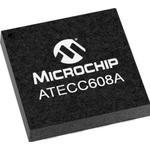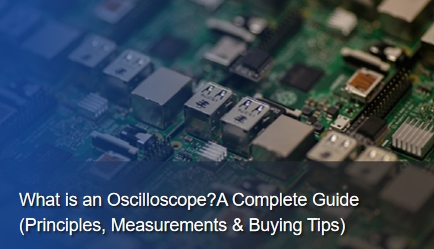A Deep Dive into Security Verification and Encryption Chips
1. Introduction to Security Verification and Encryption Chips
Definition and PurposeSecurity verification and encryption chips are specialized hardware components designed to protect data by performing cryptographic operations and authentication processes. These chips are crucial in safeguarding sensitive information, preventing unauthorized access, and ensuring the integrity of systems. Importance in Modern Electronics
Importance in Modern Electronics
In today’s digital age, protecting sensitive data is more critical than ever. Security verification and encryption chips play a vital role in modern electronics by ensuring data privacy, securing communications, and maintaining the integrity of various systems. These chips are integral in preventing data breaches and cyber-attacks, making them indispensable in numerous applications, from consumer electronics to industrial systems.
2. Working Principles of Security Verification and Encryption Chips
Cryptographic AlgorithmsEncryption chips utilize various cryptographic algorithms to secure data. Common algorithms include:AES (Advanced Encryption Standard): Widely used for secure data transmission and storage.RSA (Rivest-Shamir-Adleman): Commonly used for secure data transmission, particularly in key exchange protocols.ECC (Elliptic Curve Cryptography): Offers similar security to RSA but with smaller key sizes, making it more efficient for mobile devices.These algorithms ensure data is encrypted and decrypted securely, protecting it from unauthorized access.
Key ManagementKey management involves the generation, storage, and management of cryptographic keys. Effective key management is crucial for maintaining the security of encrypted data. Encryption chips often include secure key storage areas and mechanisms to manage keys without exposing them to unauthorized users.
Authentication Processes
Authentication processes in security chips verify the identity of users or devices, ensuring data integrity and origin authenticity. This can involve password verification, biometric data, or other authentication methods embedded within the chip, enhancing security measures.
3. Types of Security Verification and Encryption Chips
Hardware Security Modules (HSMs)HSMs are dedicated hardware devices designed to protect and manage digital keys for strong authentication and provide cryptoprocessing. They are widely used in enterprise environments to secure financial transactions, digital signatures, and key management.
Trusted Platform Modules (TPMs)TPMs are hardware-based security devices that provide secure storage for cryptographic keys and can perform encryption and decryption functions. They are commonly used in computing devices to ensure the integrity and security of the platform.
Secure ElementsSecure elements are tamper-resistant chips used to store sensitive information securely. They are typically found in SIM cards, payment cards, and secure identification cards, providing robust security for mobile payments and identity verification.
Cryptographic Accelerators
Cryptographic accelerators are specialized hardware designed to speed up cryptographic operations, such as encryption, decryption, and authentication. These accelerators enhance the performance of systems requiring high-speed data security, such as servers and data centers.
4. Key Features and Benefits of Security Verification and Encryption Chips
Data ConfidentialityEncryption chips ensure data confidentiality by encrypting sensitive information, making it unreadable to unauthorized users. This protects data privacy and prevents data breaches.
Data IntegrityThese chips maintain data integrity by ensuring that data is not altered during transmission or storage. Cryptographic checksums and digital signatures verify that the data remains unchanged and authentic.
AuthenticationSecurity verification chips authenticate users and devices, preventing unauthorized access to systems and data. This ensures that only legitimate users can access sensitive information.
Performance Enhancement
Encryption chips improve system performance by offloading cryptographic operations from the main processor. This allows for faster encryption and decryption processes, enhancing overall system efficiency.
5. Applications of Security Verification and Encryption Chips
Consumer ElectronicsIn consumer electronics, these chips protect user data and privacy in devices such as smartphones, tablets, and laptops. They secure communications, personal data, and financial transactions.
Financial ServicesEncryption chips are crucial in financial services, ensuring the security of payment terminals and online transactions. They protect against fraud and unauthorized access, maintaining the integrity of financial data.
HealthcareIn healthcare, these chips secure sensitive patient information and medical records. They are used in medical devices and health data management systems to protect against data breaches and ensure patient privacy.
Automotive Systems
In automotive systems, security chips safeguard data transmission in infotainment systems, remote diagnostics, and advanced driver-assistance systems (ADAS). They ensure the safety and security of vehicle communications and operations.
6. Design Considerations for Security Verification and Encryption Chips
Integration with Existing SystemsWhen integrating security chips into existing systems, it is crucial to ensure compatibility and performance. This involves assessing the system architecture and making necessary adjustments to incorporate the security chip effectively.
Power ConsumptionEncryption operations can significantly impact power consumption, especially in battery-operated devices. It is essential to consider the power efficiency of the security chip to balance performance and battery life.
Latency and ThroughputEvaluating the performance of encryption chips in terms of processing speed and latency is vital. Ensuring low latency and high throughput can enhance system responsiveness and user experience.
Scalability
Designing scalable security solutions is essential to meet growing data protection needs. This involves selecting security chips that can handle increasing data volumes and support future expansions.
7. Trends and Innovations in Security Verification and Encryption Chips
Post-Quantum CryptographyWith the advent of quantum computing, traditional cryptographic algorithms may become vulnerable. Post-Quantum Cryptography (PQC) aims to develop new algorithms that can withstand quantum attacks, ensuring long-term data security.
AI-Driven SecurityArtificial intelligence is increasingly being integrated into security solutions to enhance threat detection and response. AI-driven security chips can analyze patterns and detect anomalies, providing robust protection against advanced cyber threats.
Blockchain Integration
Integrating blockchain technology with encryption chips enhances data security and transparency. Blockchain's decentralized nature ensures that data remains tamper-proof, and encryption chips provide additional layers of protection.
8. Challenges in Implementing Security Verification and Encryption Chips
Cost ConsiderationsImplementing high-level security protections can be costly. It is essential to balance the cost of security chips with the level of protection required, ensuring that investments are justified by the enhanced security they provide.
Regulatory ComplianceEnsuring that encryption chips comply with national and industry-specific security standards and regulations is crucial. Non-compliance can lead to legal issues and compromise the security of systems.
Complexity of IntegrationIntegrating security chips into existing systems can be complex and challenging. It requires careful planning and technical expertise to ensure seamless integration without disrupting system functionality.
9. Practical Tips for Selecting Security Verification and Encryption Chips
Assessing Security NeedsEvaluate the specific security requirements of your application to determine the level of protection needed. Consider factors such as data sensitivity, regulatory requirements, and potential threats.
Testing and Validation
Conduct thorough testing and validation of encryption chips to ensure they perform as expected in real-world scenarios. This includes stress testing, performance benchmarking, and security assessments.
10. Recommended Brands and Suppliers
Top BrandsMicrochip Technology: Known for producing high-quality, reliable security chips with robust features.
NXP Semiconductors: Offers a wide range of security and encryption chips known for their performance and security.
Suppliers
For reliable sourcing of security verification and encryption chips, consider trusted suppliers such as:unikeyic Electronics: Provides a comprehensive range of high-quality security chips from top brands, ensuring robust protection for your projects.By understanding these aspects and considerations, you can make informed decisions when selecting security verification and encryption chips, ensuring the protection and integrity of your data and systems.






















